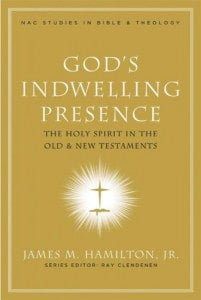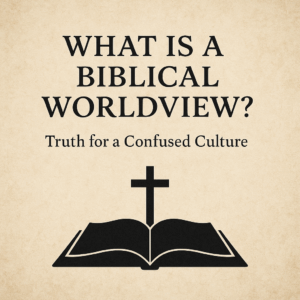⏱️ Estimated Reading Time: 6 min read
 It seems that far too often, the Holy Spirit is viewed as something of a New Testament phenomenon, a part of the Godhead that sort of sat on the sidelines for the first 39 books of the Bible while God and at times a pre-incarnate Jesus took care of things. Of course nothing could be further from the truth given the Holy Spirit has been active from eternity past and will be active until eternity future. James Hamilton, in his helpful book God’s Indwelling Presence: The Holy Spirit in the Old & New Testaments, outlines the work of the Holy Spirit throughout Scripture, paying particular attention to the question of whether the Holy Spirit dwelt within the elect far before the events of Pentecost.
It seems that far too often, the Holy Spirit is viewed as something of a New Testament phenomenon, a part of the Godhead that sort of sat on the sidelines for the first 39 books of the Bible while God and at times a pre-incarnate Jesus took care of things. Of course nothing could be further from the truth given the Holy Spirit has been active from eternity past and will be active until eternity future. James Hamilton, in his helpful book God’s Indwelling Presence: The Holy Spirit in the Old & New Testaments, outlines the work of the Holy Spirit throughout Scripture, paying particular attention to the question of whether the Holy Spirit dwelt within the elect far before the events of Pentecost.
Hamilton begins his discussion with an overview of the various theological opinions that have been presented on this topic. He notes six overarching positions, namely that of a complete continuity in the Holy Spirit’s activity; the idea that there was more continuity than there was discontinuity; a half and half approach of some continuity and some discontinuity; a belief in more discontinuity than continuity; the complete discontinuity approach; and finally a vague discontinuity. Each of these positions has received varying levels of support with five out of the six receiving some large level of adherence by some well respected theologians. Hamilton avers that some “have said too much” while others “have said too little.” To those stated positions, he seeks in this book “to demonstrate that the Old Testament has within itself a God-ordained, God-inspired means for the regeneration and sanctification of its saints – a means that allows for the operation of the Spirit on old covenant believers while also allowing for the full force of John 7:39, 14:16-17, and 16:7 to stand.”
This operating thesis is first supported by the Hamilton’s belief that “the Old Testament does not indicate that each individual member of the old covenant remnant was indwelt by the Holy Spirit.” What we find instead is the concept of God dwelling in a corporate sense, whether that was through the wilderness tabernacle, a pillar of cloud/fire, or in the temple. Hamilton does spend time examining those who were filled with the Spirit and empowered to do mighty works by God for specific times and for specific reasons. He compares the Old Testament dwelling with the New Testament indwelling noting “The Old Testament presents God as dwelling in particular locations, not in individual believers. This contrasts with the New Testament teaching that God no longer dwells at particular places and instead dwells in human beings.” We find in Jeremiah 31:31-34 the promise of that future indwelling, a time when the Holy Spirit would indwell the believer and in turn write God’s law on their very hearts.
Hamilton next transitions to an in-depth discussion of the Holy Spirit as outlined in the New Testament, rooting much of his analysis within the Gospel of John, specifically John 1-12. He begins his discussion with an overview of Johannine teaching on the Holy Spirit in order to provide the reader with a basis for understanding the future comments made on the indwelling nature of the Holy Spirit. Hamilton does a great job of explaining the important term parakletos, in particular the variety of meanings that term has within the New Testament and how each use of that term should be understood and applied.
Perhaps the most interesting portion of Hamilton’s book for me was the final chapter aptly titled “Results and Relevance for Today.” In any good book, especially one that deals with important topics such as the person and work of the Holy Spirit through Scripture, addressing the “so what” of the matter is always an important final aspect to conclude a book with. Hamilton does not disappoint in that regard. He aptly notes “The conclusions reached in this biblical theology of the Spirit’s role in salvation have important implications for our understanding of what it means to be the people of God at this point in salvation history.” This understanding reveals itself in issues such as church discipline, an issue one might not immediately relate to this particular subject matter. Since God indwells His people through the Holy Spirit, we should thus strive to be holy through the work of the Holy Spirit in our lives. God had specific requirements in the Old Testament for what holiness looked like in daily practice and within the temple. Such requirements also find themselves revealed in the New Testament as well. After all, as Hamilton so rightly notes, “Our prayer should be that God will enable us to live as those in whom He is pleased to dwell.” This means at the end of the day, understanding the reality of the Holy Spirit indwelling the believer must result in a pursuit of holiness by that believer.
Those desiring a clearer understanding of how the Holy Spirit operated in the Old Testament compared to how He operates today should give Hamilton’s book a read. Replete with solid biblical scholarship, this book will provide the reader with much to think about concerning this subject matter, while helping them realize the all important issue of holiness, an issue too often neglected in our day. We have the Holy Spirit of God living within us which should result in a life focused on bringing God glory in all we do through the power of the Spirit who is writing God’s Word on our hearts. Hamilton’s book brings all these valuable and important theological and practical issues of life to light.
Buy the book from God’s Indwelling Presence: The Holy Spirit in the Old and New Testaments (New American Commentary Studies in Bible & Theology), or from B&H Academic by clicking here.
I received this book for free from B&H Academic for this review. I was not required to write a positive review. The opinions I have expressed are my own. I am disclosing this in accordance with the Federal Trade Commission’s 16 CFR, Part 255 : “Guides Concerning the Use of Endorsements and Testimonials in Advertising.”




